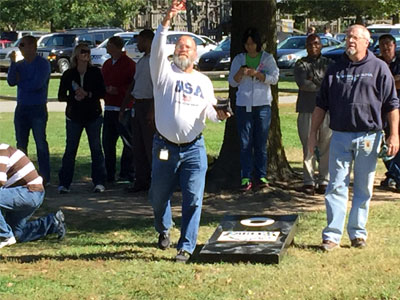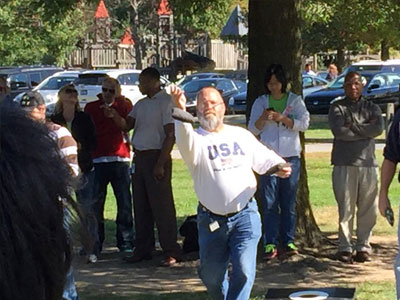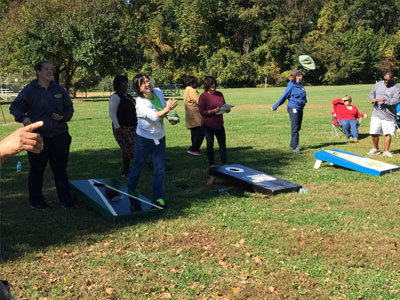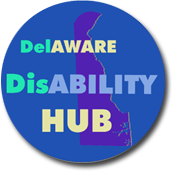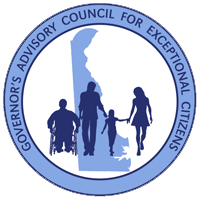Kathi Stephan

How did you get started working with people with disabilities?
I started working with young adults with disabilities at age sixteen in New Hampshire. I worked in a group home two nights a week and on the weekends. The students ranged in age from four to twenty-one. They had multiple disabilities and autism. I enjoyed it so much.
Where did you go to college and what was your major? How did your major influence the work you do advocating for individuals with disabilities?
I decided to go to college for Special Education. During college, I continued to work with students with disabilities in camps and summer school. After I graduated from Keene State College, the Nashua Center School hired me as a transition teacher. I worked with young adults sixteen to twenty one transitioning them out of school and into the world of work. I was able to be part of the shutdown of the segregated school and see firsthand how the younger students were included in their local schools. It was an incredible opportunity to see the beginning of inclusive practices in New Hampshire! I was also lucky enough to be an adult provider for gentleman with multiple disabilities. We lived in a shared living situation for over a year. He had a passion for airplanes and my husband is a pilot. We were able to get him up into an airplane for a sightseeing ride. An amazing opportunity to see a dream come true for this guy who spent the first fifty years of his life in an institution.
I moved around with my husband’s job and was able to work in Michigan as well before settling down in Delaware. I took the first job I could find in my own child’s elementary school. It was not long before I realized I would have to go back into the transition world. I became a transition coordinator for the J.S. Charlton School for four years before leaving for a district Transition Coordinator position at Capital School district office.
How long have you been involved in the Disability Community?
Overall, I have been part of the disability community for over thirty years.
Where are you currently working and in what school district?
I currently am the Associate Principal for the Kent County Community School, in the Capital School Dstrict in charge of secondary programming.
When did you become interested and advocating for individuals with disabilities?
All of my experience has me advocating for individuals with disabilities. As an instructional/transition coach in secondary, I have been able to focus the advocacy around training teachers and administrators about self-determination and self-advocacy. They then took the information and was able to begin the process of student led conferences, student led IEP’s and student led classrooms.
What have you learned from working with people with disabilities?
One of the biggest lessons learned from working with people with disabilities is that you cannot start soon enough! I always say, “you are never too young to learn about transition!” We need parents to have the resources and the conversations early so that planning can begin. We should begin the conversations with parents around having a vision for what they and their child want after exiting the school system. For many, they are unsure about what the future holds. It is our job as educators to give them resources and real examples of what is possible. Once there is a vision, we can begin to develop Post School Goals to get us to the result. The IEP should then support those goals. Best case scenario would be to have a student leading his/her IEP and sharing the goals and the way to “map” or “”goals” that will get them there. We also have to encourage parents to develop relationships with adult provider agencies and state agencies that will continue to support their child throughout adulthood. It should be a seamless transition from school to work or college if there has been time to build these relationships years before school ends.
What are some barriers that transitioning youth encounter? What do you suggest to over come them?
One of the biggest barriers transitioning youth face is the lack of exposure to possibilities. As educators and parents, we should be exposing students to job opportunities in everyday outings. If families are going grocery shopping, discuss the jobs available while you are there. If you have family member with jobs that match your child’s interest, have them share what they do. If classes are taking a trip as part of a lesson, make sure we build in time to discuss what job opportunities exist at these places. We have a unique opportunity to understand the interests of our students/children, we need to make sure we pair those with job opportunities and have them see what is possible in the community they live in or beyond in the world. Encourage them to ask questions, and explore types of jobs available.
What were you biggest challenges and accomplishments while working with people with disabilities?
The biggest challenge I have had working with people with disabilities is how to get families the vast amount of information available to begin to plan for life after school. This also leads into one of my greatest accomplishments! This year a team of transition specialist came together to create the first ever Kent County Transition Fair. It was two years in the making and it took networking with a transition specialist in New Castle County to get it down. It was a huge success and many families attended.
What would you share with those with the same type of job that could inspire them?
For my fellow transition teachers I would challenge you to become better by working within your county’s group of transition specialists! We are very fortunate in Delaware to have three counties. The Delaware Transition Cadre’s new format has us each meeting by county during the meetings now. It has been a great networking opportunity. Working together is key to making sure all of our families begin to plan early and effectively. That is the true key to success for our students!
